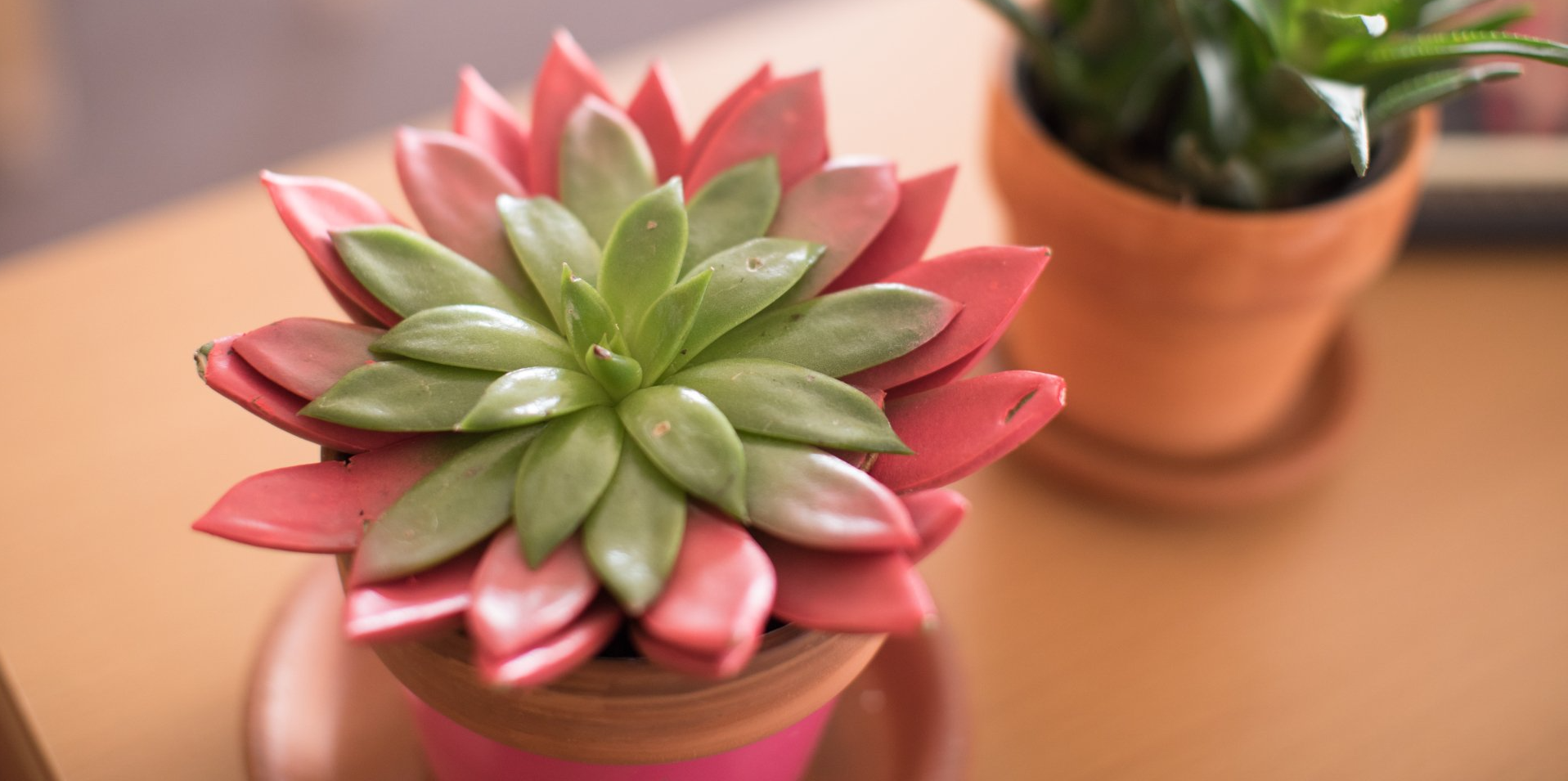
Montessori students begin studying biology at a young age, usually around age three during their first year in the Primary environment. This work continues throughout the course of their time with us.
Primary students explore information with more depth than one might imagine, so they end up with a strong base of understanding about living organisms.
Along with zoology, botany is one of the earliest subjects explored. We give our students lessons about plant life, and there are supplemental materials on the shelves for them to explore. The learning doesn’t stop there. When it comes to biology, we believe having living examples is one of the best ways to spark genuine interest and increase understanding. Plants are one of the easiest ways to do this, and within our classrooms and throughout the building you will find many beautiful indoor plants that are maintained by our students at all levels.
The Practical Life Angle
When we think of practical life, all that we teach generally falls under the umbrella of three categories: care of oneself, care of others, and care of the environment. The more we participate in this type of work, the more we realize how connected the categories are.
Plants are one of the best teachers of practical life skills. Keeping living specimens in our classrooms is an essential Montessori practice. Studies have shown the presence of plants to have a positive effect on people’s moods, they are helpful in filtering the air, and they contribute to the natural beauty of our classroom environments.
However, rather than letting a bunch of pretty plants sit there and be cared for by the teachers, we engage our students in the important work of plant care. The children in our classrooms learn how to properly water living plants and to dust their leaves. They learn to recognize that some plants need more sunlight than others, and that it is up to us to ensure they’re placed in proximity to windows accordingly.
Beyond the potted plant, our students learn to appreciate the art of arranging flowers to beautify the classroom. They plant gardens, tend to their seedlings, and harvest their own vegetables. They take on a sense of responsibility for living things that are reliant on them.
Well-cared for plants beautify the learning environment, bringing a sort of energized calm into the atmosphere. Plants are also a wonderful introduction into learning to care for something beyond yourself; they have the ability to teach both empathy and responsibility.
The Science Angle
Starting in Montessori primary classrooms and continuing on throughout their school career, our students study botany each year in various ways. The skills start simply and are often accompanied by gorgeous wooden puzzles, but our study of plants is always rooted in living examples.
The content covered is wide-ranging and often intertwines with other subject areas. Here is a general idea of the scope and sequence of our botany curriculum:
- Parts of… (a plant, a tree, a flower, a seed, etc.)
- Identification of various leaf shapes
- Evolution of plants on Earth
- Types of plants
- Plant reproduction
- Plant respiration
- Categories with the plant kingdom
- Botany experiments
- In-depth studies of types of plants and parts of plants
- Native and invasive species
- Plants’ roles with ecosystems
- Interactions between people and plants
- Plants’ roles in economies
There are opportunities throughout your child’s time at CMS to engage in “research projects” about plants. Sometimes young children may choose to write or draw about what they’ve learned, while older children might take an interest in a particular species, looking up information and writing reports to be shared with classmates.
Exposure to botany beginning at a young age, coupled with an understanding of how plant life has evolved over the course of Earth’s history, leads Montessori children to appreciate and understand more about this kingdom than many of their peers. They are encouraged to explore their own interests more as they get older, and it’s often amazing how many of them choose independent exploration of this particular subject.
Bringing It Home
Parents often ask us how they can support the Montessori curriculum in their own homes. While we do not advise families to purchase Montessori materials, as they can only be used correctly after receiving specific training, caring for plants in your home is a wonderful way to bring your child’s school experience into your home.
Start simply! This might even be just picking up a bouquet of flowers at the store, or gathering wildflowers near your home, then asking your child to show you how they learned to arrange them at school. Provide your child with a pair of scissors, a vase or two (or even just empty glass jars!), and access to a sink. If they are still learning, you might guide them in making sure they trim stems at an angle, and explain how this allows the cut flowers to absorb more water. Allow your child to display the flower arrangements inside your home. Here are some more tips on how to follow your child and let them be the leader at home.
It can also be beneficial to let your child assist in taking care of your existing houseplants, or perhaps purchase one or two plants that they can be in charge of at home. Teach them to recognize that different types of plants have different light and watering needs. Remind them to mist or dust leaves occasionally, not only to make the plants look nice, but to help them be more efficient in their photosynthesis.
January is a time when gardeners delight in huddling inside their warm homes, thumbing through seed catalogues and planning out what they will do during the upcoming seasons. Spring will be here before you know it!





